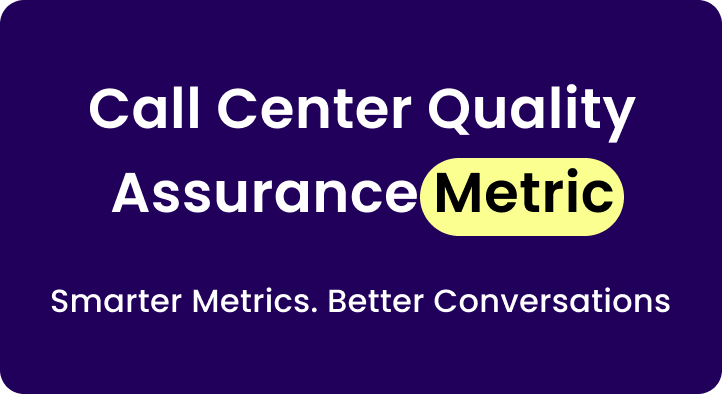Let’s face this: You are planning to buy your dream home.
While searching online, you find a real estate website, and you decide to give them a call.
The real estate agent on the other end is friendly, attentive, and knowledgeable.
He listens to your requirements, answers your questions, and provides insights that help you make an informed decision.
This experience leaves you not just satisfied, but impressed.
You feel like you’ve found a partner who understands your needs.
In real estate, it’s not just about answering questions. It’s about building trust and understanding client needs. You must also find solutions that match their dreams.
However, the journey agents take is not easy.
Navigating the fast-changing real estate market can be tough. You must keep up with trends and manage high-pressure situations. These challenges need skill and flexibility.
This is where the concept of agent feedback steps onto the stage.
In this insightful article, we’re about to unlock a world of possibilities that feedback brings to the world of real estate.
Table of Contents
A. Significance of agent performance in real estate business
Positive agent performance is like the secret ingredient that makes your real estate business stand out.
When agents go the extra mile, when they truly listen and engage with clients, it creates a chain reaction of benefits that extend far beyond that single conversation.
1. Customer Satisfaction
Think of customer satisfaction as the heart of your business.
When clients feel valued and heard, they’re not just satisfied; they’re likely to remember and recommend your services.
A good interaction can make a strong impact. It can turn potential buyers or sellers into loyal customers.
2. Referrals
A happy client is like a brand ambassador.
They don’t just keep their positive experience to themselves; they’re likely to tell their friends, family, and colleagues about it.
These referrals serve as strong endorsements. They bring in new clients without any effort from you.
3. Business Growth
Now, let’s talk about the big picture – business growth.
When customer satisfaction and referrals increase, your real estate business flourishes.
B. Challenges in real estate market & need for improvement
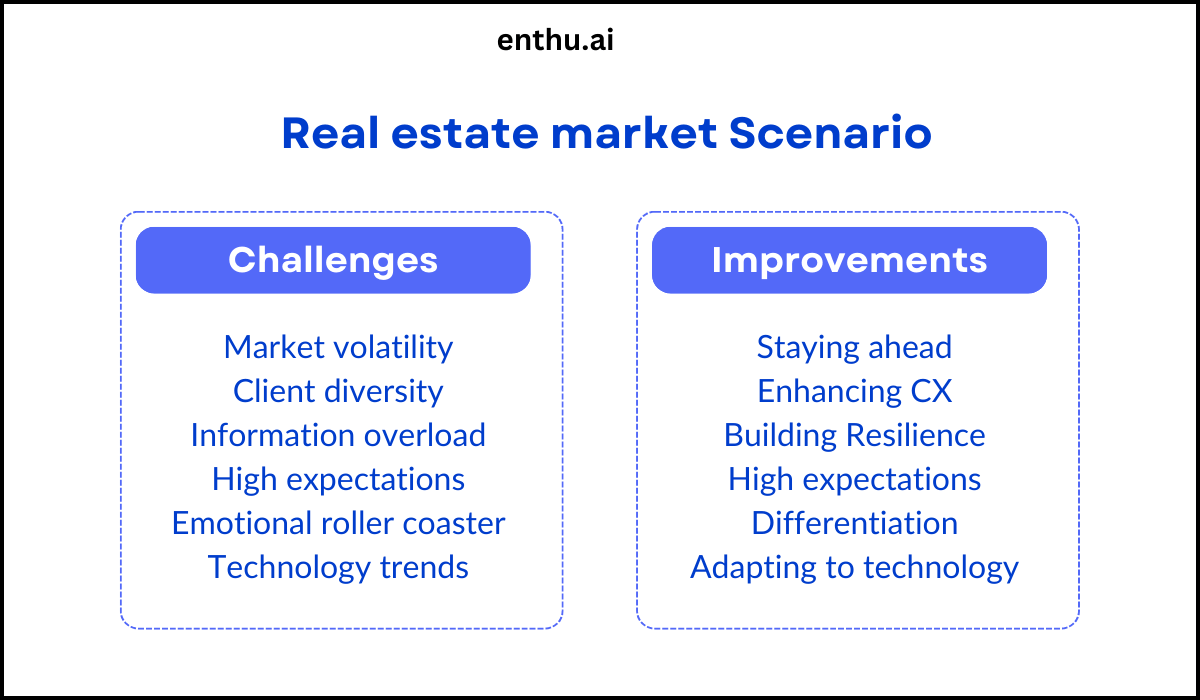
1. Unravelling the challenges
As a real estate agent, you’re not just selling properties; you’re selling dreams, aspirations, and life-changing decisions.
But this endeavor is not without its hurdles:
Market volatility: The real estate market is like a roller coaster, with prices rising one moment and dipping the next.
Agents must keep up with market trends, economic changes, and local news. This helps them give clients accurate advice.
Client diversity: Each client is unique, with distinct needs, preferences, and timelines.
It can be hard to balance these differences and still provide personalized service. This demands a great deal of adaptability.
Information overload: Agents face a huge flow of details, from property listings to legal matters. Transforming this raw data into meaningful insights for clients can be overwhelming. High expectations: Clients often expect instant responses and top-notch customer service. Managing these expectations while handling multiple clients can be stressful. Emotional roller coaster: Real estate transactions are emotional journeys. Agents must navigate through clients’ anxieties, uncertainties, and relationships while remaining composed. Technology trends: Some old-school agents shy away from technology and don’t feel comfortable using modern tools. Continuous improvement in real estate isn’t just a choice; it’s imperative: and here’s why; Staying ahead: As the market evolves, so should agents. Agents learn continuously and enhance their skills. This helps them give up-to-date insights and useful guidance. Enhancing client experience: Every interaction is a chance to exceed expectations. Improving communication, problem-solving, and negotiation skills enhances the client experience. Building resilience: Challenges will always come up. However, with ongoing improvement, agents gain resilience and resourcefulness to face them directly. Differentiation: In a competitive market, standing out is crucial. Agents who consistently improve their skills and adapt to changing trends become market leaders. Adapting to technology: Technology is reshaping the industry. Discover some great ways to cultivate an environment of growth and excellence within your real estate business. 1. Regular feedback sessions: Think of them as important stops on the path to getting better. These sessions give agents a clear way to learn about their strengths and where they can improve. Regular feedback discussions help track progress, acknowledge achievements, and address areas for improvement quickly. 2. Thorough performance reviews: Just like an annual health check is vital, comprehensive performance reviews are too. They should rely on agent scorecards for accuracy. These reviews give a complete view of an agent’s journey. They show their growth, achievements, and contributions. Feedback from these reviews helps agents improve their skills and set new goals. 3. Collaborative team meetings: In a real estate team, collaboration is the cornerstone of success. Team meetings are not only an opportunity to share updates but also a platform for collective learning. When agents share their success stories and discuss challenges, they learn from each other. Open talks and brainstorming lead to valuable insights. 4. Selecting the right tool: Feedback doesn’t just happen magically; it needs the right tools to make it effective and efficient. Think of a tool that records interactions and gives you deep insights. It shows communication trends, customer sentiments, and how agents perform. Enthu.AI is the right tool for your improvement journey. It offers data-driven insights that help shape targeted training and strategies. Latest trends in agent feedback management and performance enhancement are reshaping the way agents and businesses interact with clients. Here are a few key trends: 1. Conversation Analytics: Technology is now capable of understanding not just the words spoken, but also the tone, emotions, and sentiment behind them. This allows for a deeper analysis of interactions and aids in identifying areas for improvement. 2. AI-Powered Insights: AI can analyze large data sets to give useful insights. These insights can help with training, improve communication, and boost the customer experience. 3. Personalized Coaching: Feedback is getting more personal. Agents get feedback based on their needs. This leads to targeted training and faster skill growth. 4. Real-time feedback: Instant agent feedback mechanisms are on the rise. Agents can get help during calls. This support lets them adapt quickly and provide great experiences. 5. Automation for QA: Quality Assurance (QA) is becoming automated. QA scorecards make it easier to spot coaching session opportunities. This helps free up resources for more productive tasks. In the midst of these evolving trends, Enthu.AI is a groundbreaking speech analytics software that emerges as a game-changer for real estate professionals. Tailored for real estate agents and firms, it offers a suite of features designed to tackle the challenges faced in the field. Enthu.AI’s speech analytics and call monitoring features serve as the seatbelts that keep agents securely fastened. By analyzing conversations, it helps agents stay attuned to market trends, economic shifts, and local developments. This data-driven insight enables agents to provide clients with accurate guidance, fostering trust and informed decisions. Handling different clients can be challenging, but Enthu.AI’s tools are like a safety net for agents. QA helps them navigate client interactions with more confidence. This tool ensures that each interaction aligns with the unique needs and preferences of clients. By offering personalized service, agents demonstrate adaptability while maintaining a high level of professionalism. The sea of information can be overwhelming, but Enthu.AI’s data analytics and agent coaching features act as navigational compasses. It transforms raw data into meaningful insights, making property listings and legal intricacies comprehensible to clients. Moreover, coaching helps agents feel sure about sharing these insights, making them really good at passing on information. In the realm of real estate, where every client interaction holds the potential to shape dreams and decisions, the power of feedback and technology shines through. As the real estate landscape evolves, embracing agent feedback-driven strategies and cutting-edge technologies becomes essential for thriving in this dynamic industry. By leveraging Enthu.AI’s innovative solutions, real estate businesses can enhance agent performance, elevate customer experiences, and carve a path toward sustained growth and success. 1. What is a feedback agent? A feedback agent is someone or a system that gives feedback to help improve performance, processes, or decisions. It is often used in customer service, quality checks, and AI systems. 2. How do you write an agent a positive feedback? Constructive feedback for an agent should be balanced and specific. It should emphasize achievements and strengths to promote development and motivation. Also, providing helpful suggestions for areas needing improvement is essential, all while maintaining a positive tone. 3. What is an example of positive feedback for an agent? Example: “Great job on your recent calls! Your patience and attentive listening skills were instrumental in resolving customer issues smoothly. Keep up the excellent work—you’re building strong customer relationships and enhancing our service quality!”2. The Need for continuous improvement
C. Implementing the agent feedback-centric culture in real-estate customer service
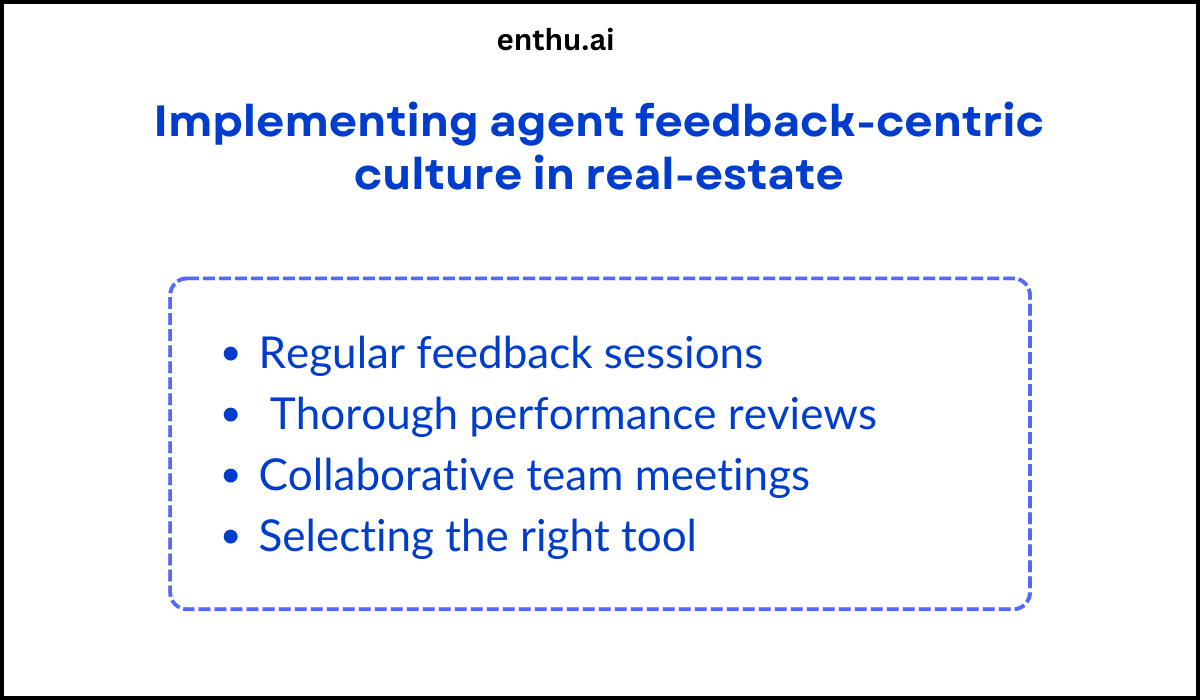
D. Emerging trends in feedback management and performance enhancement
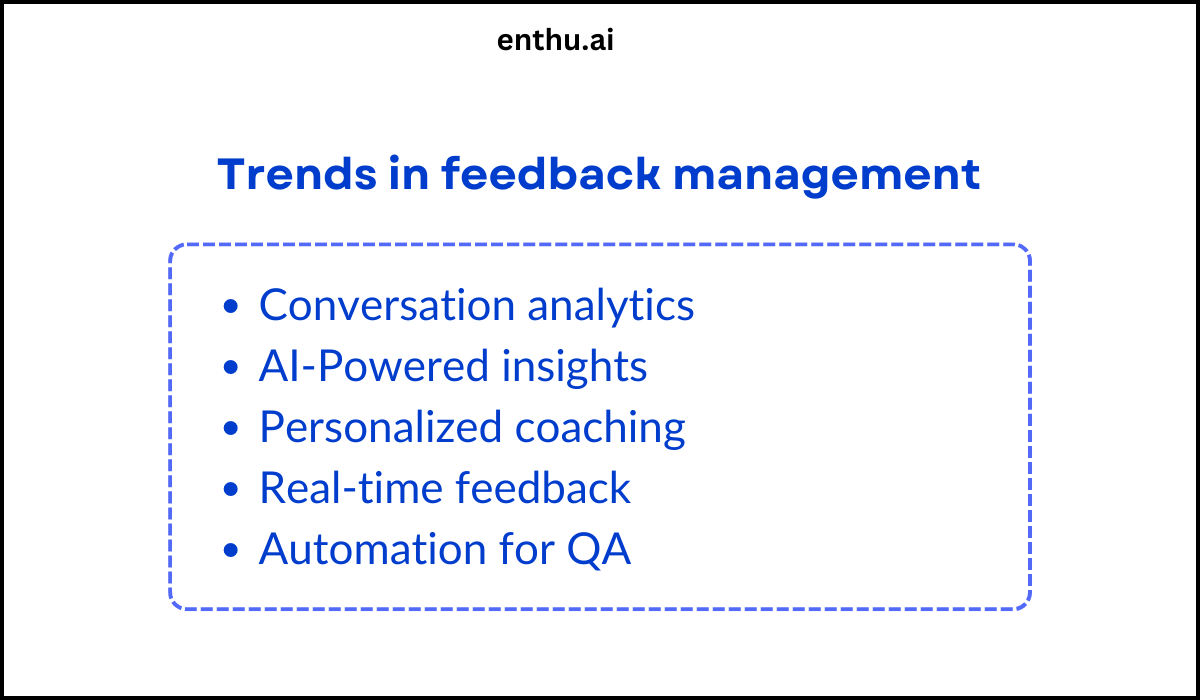
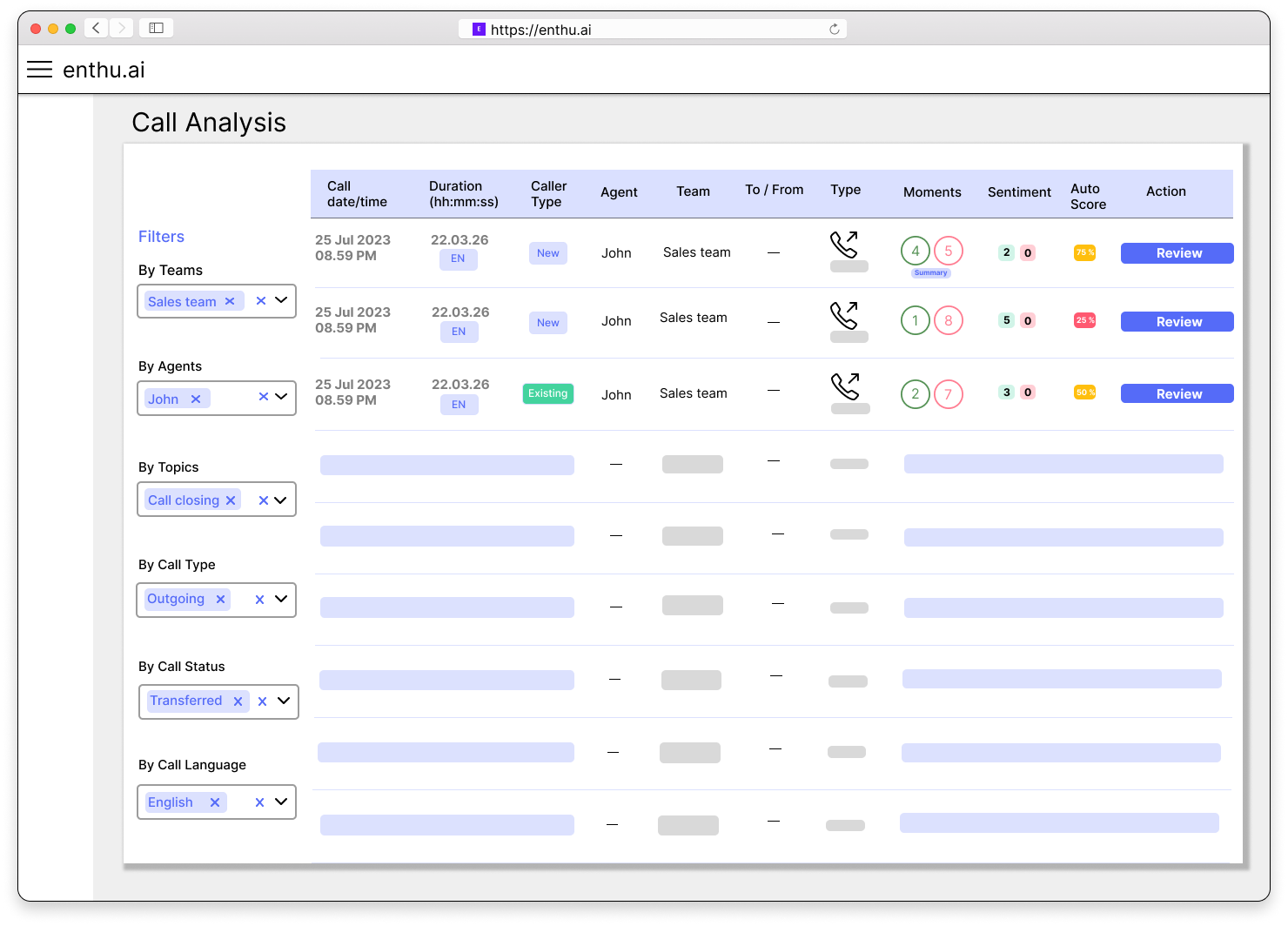
E . Enthu.AI: transforming real estate agent performance
1. Speech analytics and call monitoring:
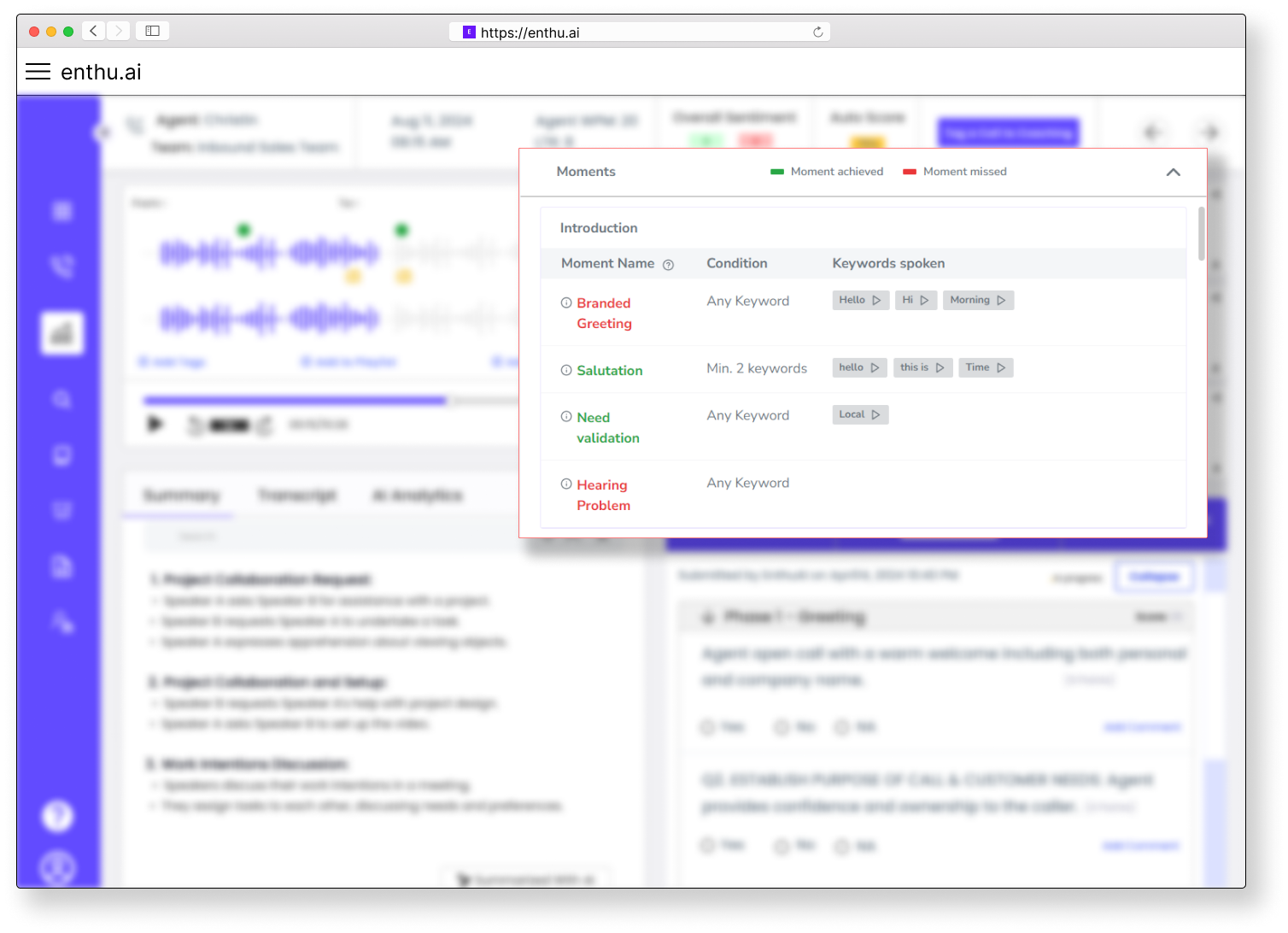
2. Quality assurance and conversation analytics
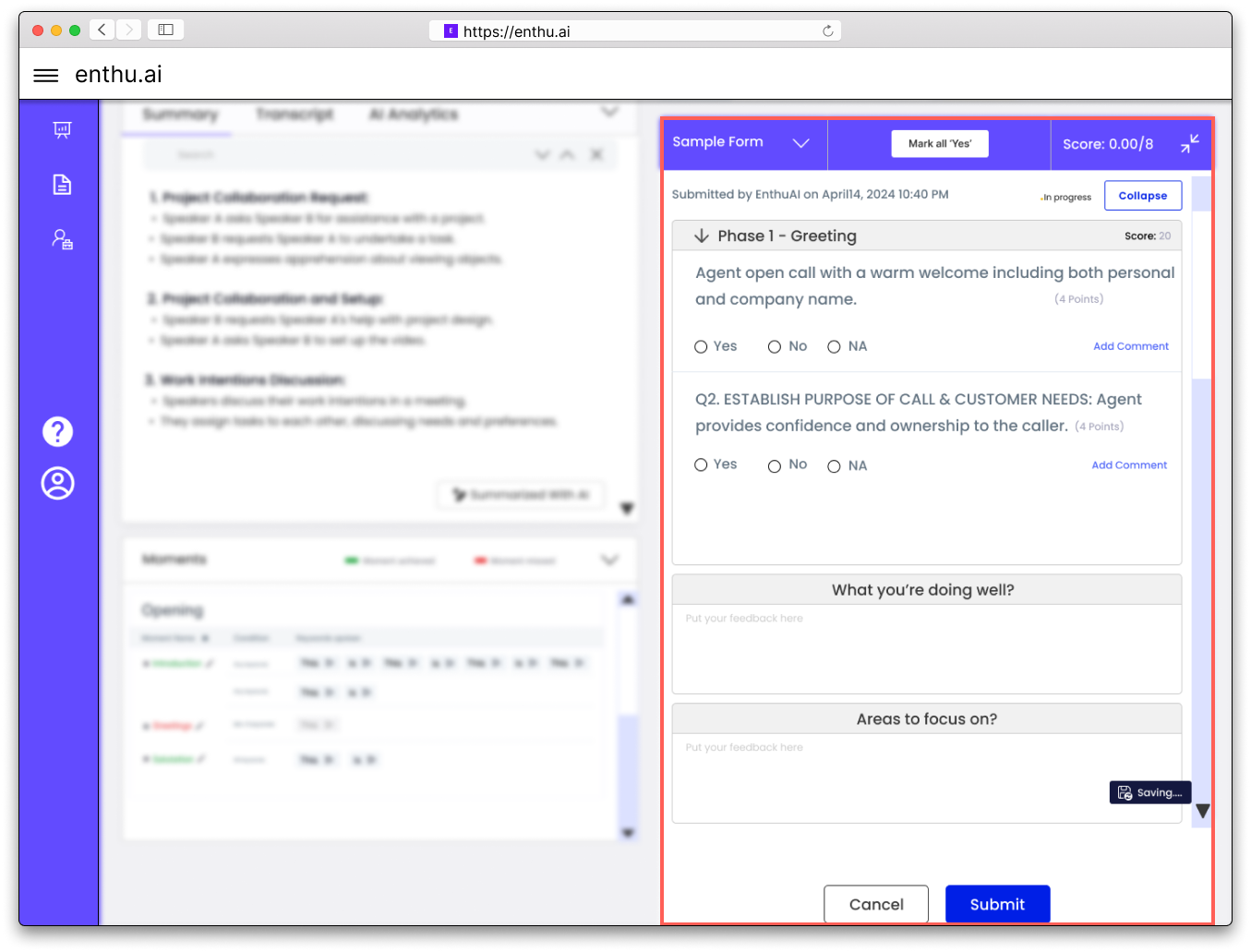
3. Data analytics and agent coaching

Conclusion
FAQs
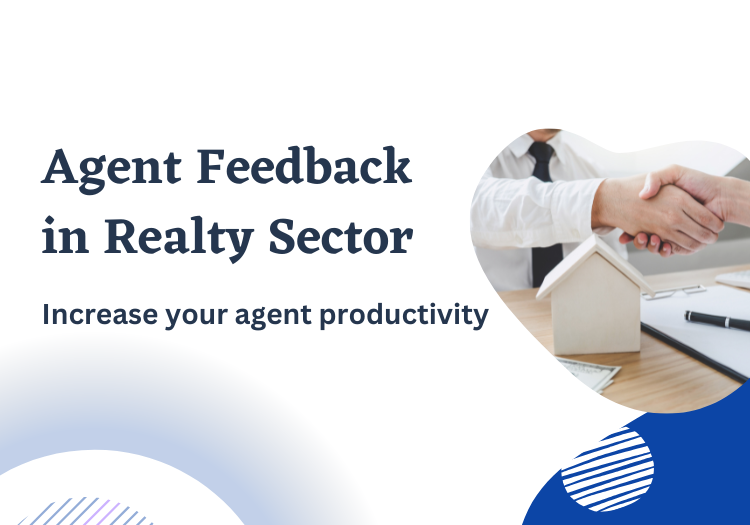



 On this page
On this page